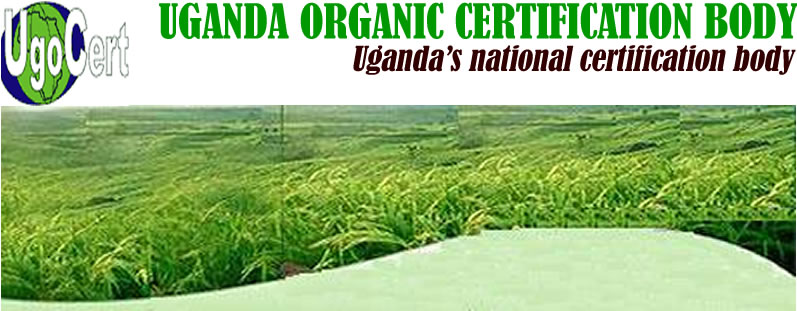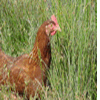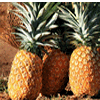If you’re looking for high-quality, organic produce, it can be confusing to know which brand to choose. This article provides five tips for choosing an organic produce brand.
The 5 Tips for Choosing an Organic Produce Brand
When shopping for organic produce, be sure to choose a brand that you trust. When shopping for organic produce, read the label. Be sure to compare prices and find the best deal for organic produce. Be sure to buy organic produce when possible.
When choosing an organic produce brand, consider factors such as quality, eco-friendly practices, and customer reviews. In order to choose a reputable organic produce brand, look for brands with high customer ratings and check their environmental impact. Additionally, make sure the brand is certified by an accredited institution. Finally, always ask your grocer about the specific ingredients used in the product.
How to Choose the Right Organic Produce Brand
When choosing an organic produce brand, it is important to consider the benefits and drawbacks of each brand. There are many different organic produce brands to choose from, and it can be difficult to decide which one is right for you. Here are five tips for choosing the right organic produce brand:
1. research the different organic produce brands before making a purchase.
2. quality is key when choosing an organic produce brand.
3. price is also important when choosing an organic produce brand.
4. certification is one factor to consider when choosing an organic produce brand.
5. it is important to choose a brand that matches your dietary preferences.
The Benefits of Buying Organic Produce
Organic produce is a healthier choice.
One of the main benefits of buying organic produce is that it is pesticide-free. Pesticides are chemicals used to control pests, but they can also have negative effects on humans and the environment. Pesticides can contaminate water supplies, cause damage to ecosystems, and even cause cancer. Organic produce is often grown without any pesticides at all, which makes it a more sustainable choice.
Another benefit of buying organic produce is that it has more nutrients. Organic fruits and vegetables are usually richer in vitamins, minerals, and antioxidants than their conventional counterparts. They also contain more dietary fiber which can help to reduce the risk of obesity and heart disease.
Organic produce is also less likely to be contaminated with harmful bacteria. In fact, studies have shown that organic produce is almost always free of harmful bacteria such as E-coli. This is because conventional farming practices rely on using antibiotics to fight off bacterial infections. However, this practice can create dangerous strains of bacteria that can cause serious diseases.
Buying organic produce helps the environment.
Conventional farming practices rely on using land and water resources in a wasteful manner. For example, most conventional farmers use irrigation systems to Wetlands which absorb and convert rainfall into freshwater. However, this process can damage the wetlands and contaminate waterways with pollutants such as nitrogen and sediment. Meanwhile, large-scale conventional farming can deplete soil fertility and increase the risk of soil erosion.
By comparison, organic farming practices are sustainable because they use fewer resources. For example, organic farmers do not use irrigation systems or chemical fertilizers, which reduces the amount of water that needs to be diverted from waterways. Additionally, organic farming techniques such as rotationally growing crops help to preserve soil fertility.
There are many different organic produce brands available on the market today. It is important to choose the right one for your needs. To help you make a wise decision, here are five tips for choosing an organic produce brand:
1. Read about the brand’s history and mission.
2. Look for a brand that has been certified by a reputable organization such as The Organic Trade Association (OTA).
3. Consider whether the brand uses natural ingredients only or if it also uses organics from sustainable sources.
4. Try to buy products that are region-specific if possible because the quality and flavor of organic produce vary from region to region.
5
The Top 5 Organic Produce Brands
Choosing the right organic produce brand can be a daunting task. There are many different brands to choose from, and each offers its own set of benefits. Here are five tips for choosing the right organic produce brand for you.
1. The 5 Tips for Choosing an Organic Produce Brand
2. How to Choose the Right Organic Produce Brand
3. The Benefits of Buying Organic Produce
4. The Different Types of Organic Produce
5. How to Choose the Right Organic Produce Brand for You
How to Tell if a Product is Organic
It’s important to check the label on a product to make sure it’s certified organic. There are a few things to look for on the label, such as certifications and symbols. Here are five tips for checking if a product is certified organic.
1. Look for a certification. There are many different certifications that an organic product can have, such as the USDA organic seal or the Eco-Label Germany.
2. Check for a symbol. Some products may also have a specific symbol that indicates it’s organic. For example, the Eco-Label Germany has a green star next to its logo.
3. Compare the ingredients to see if they’re organic. Many products on the market have non-organic ingredients, so it’s important to compare the list of ingredients to see if any are labeled organic.
4. Read the fine print. Sometimes, there are hidden details on the label that you may not initially notice. For example, some products may state that they’re certified organic but not necessarily produced according to the guidelines of the USDA organic program.
5. Ask a retailer or producer. If you still have questions about a product, ask a retailer or producer who sells or produces organically.
When shopping for organic produce, take the advice in this article to help you find the right organic produce brand for you. Choosing the right organic produce brand can be a big commitment, but the benefits are considerable. Make sure to read the article outlines and check out the recommended brands to find the right fit for your needs.
- The Importance of Maintaining a Healthy and Balanced Ecosystem: How it Benefits Us and the EnvironmentIntroduction: Understanding the Significance of a Healthy and Balanced Ecosystem Imagine a world where nature thrives in perfect harmony, where every living organism plays a vital role in maintaining the delicate balance of our planet. This is the power of a healthy ecosystem. Ecosystems are not only beautiful and awe-inspiring, but they also serve as… Read more: The Importance of Maintaining a Healthy and Balanced Ecosystem: How it Benefits Us and the Environment
- The Importance of Embracing Environmentally Sustainable Practices for a Greener Futureenvironmentally sustainable practices, greener future, climate change, renewable energy, reduce carbon footprint, eco-friendly alternatives. In today’s world, the importance of embracing environmentally sustainable practices cannot be overstated. With the growing concern over climate change and its impact on our planet, it is crucial that we take proactive steps towards creating a greener future. One of… Read more: The Importance of Embracing Environmentally Sustainable Practices for a Greener Future
- Learn How to Check for Soil Health Issues and Improve Your Garden’s ProductivityIntroduction: The Importance of Soil Health and Its Impact on Plant Growth Ensuring soil health is crucial for optimal plant growth and garden productivity. The quality of soil directly impacts the nutrients available to plants, their ability to absorb water, and overall resilience against pests and diseases. By prioritizing soil health, gardeners can create thriving… Read more: Learn How to Check for Soil Health Issues and Improve Your Garden’s Productivity
- The Latest Developments Elsewhere: Exploring the Exciting Advancements in Various FieldsThe world we live in is constantly evolving and progressing at an unprecedented pace. In every corner of the globe, remarkable advancements are being made across a multitude of fields. From science and technology to medicine and beyond, the latest developments are shaping the way we live, work, and interact with the world around us.… Read more: The Latest Developments Elsewhere: Exploring the Exciting Advancements in Various Fields
- The Importance of Soil Health and Nutrient Management: Enhancing Crop Productivity and Sustainable AgricultureIntroduction: Understanding the Vital Role of Soil Health in Agriculture In today’s rapidly changing world, the importance of soil health and sustainable agriculture practices cannot be overstated. As farmers and agricultural professionals strive to maximize crop productivity while minimizing environmental impact, the management of soil nutrients and fertility plays a crucial role. One key aspect… Read more: The Importance of Soil Health and Nutrient Management: Enhancing Crop Productivity and Sustainable Agriculture
- The Importance of Organic Standards: Ensuring Trustworthy and Sustainable AgricultureOrganic standards, trustworthy agriculture, sustainable agriculture, consumer trust, environmental impact, health benefits. In today’s world where consumers are becoming increasingly conscious about the food they consume and its impact on their health and the environment, organic standards play a crucial role in ensuring trustworthy and sustainable agriculture practices. These standards not only provide a framework… Read more: The Importance of Organic Standards: Ensuring Trustworthy and Sustainable Agriculture
- Unlocking the Secrets: How to Increase the Yield of Organic Agricultural ProductsIntroduction: The Growing Demand for Organic Agricultural Products The demand for organic agricultural products has been steadily increasing in recent years. As consumers become more health-conscious and environmentally aware, they are seeking out food that is grown without the use of synthetic pesticides, fertilizers, and genetically modified organisms (GMOs). This growing demand for organic products… Read more: Unlocking the Secrets: How to Increase the Yield of Organic Agricultural Products
- Unlocking Opportunities: The Power of International Conferences in Driving Global Collaboration and InnovationIn today’s interconnected world, international conferences have emerged as powerful platforms for driving global collaboration and innovation. These gatherings bring together experts, thought leaders, and professionals from various industries and countries, creating a unique opportunity for knowledge sharing, networking, and forging partnerships. International conferences have become powerful platforms for driving global collaboration and innovation. These… Read more: Unlocking Opportunities: The Power of International Conferences in Driving Global Collaboration and Innovation
- The Top 7 Best Ways To Raise Organic Livestock In A Healthy MannerOrganic Livestock Must Be Raised With Proper Care Organic livestock must be raised in a proper manner.This is an introduction to the topic of organic livestock farming. It is divided into three sections:Organic livestock must be raised in a proper manner. This is because organic livestock will promote the health of the soil and other… Read more: The Top 7 Best Ways To Raise Organic Livestock In A Healthy Manner






